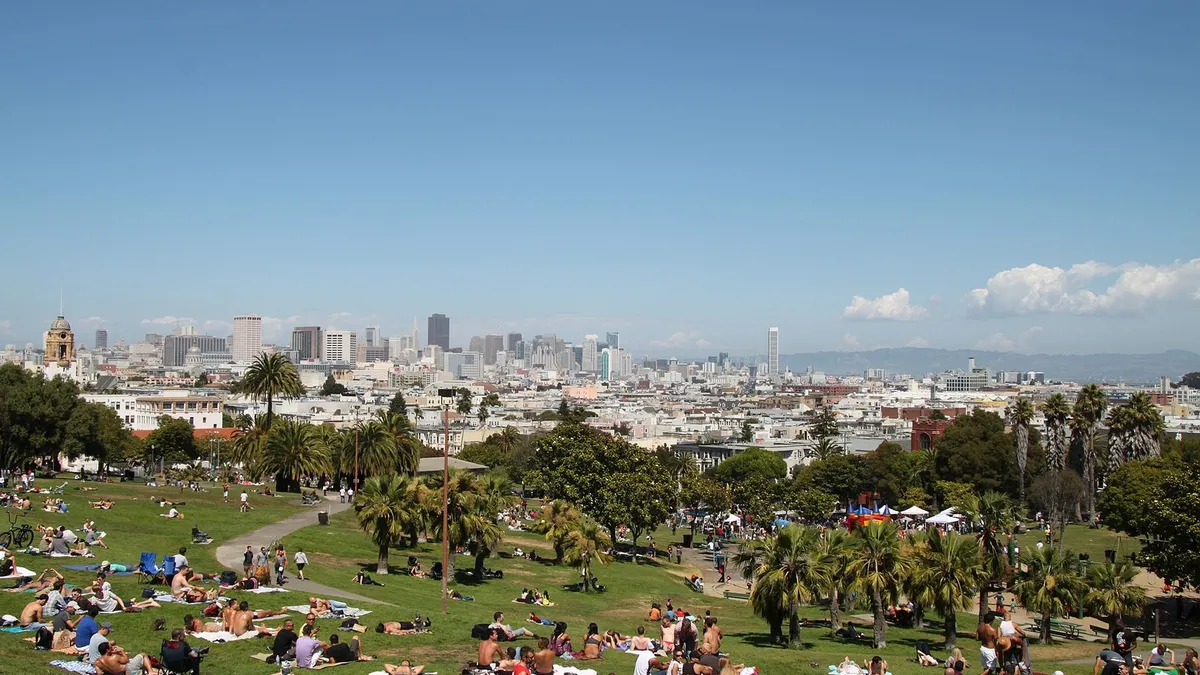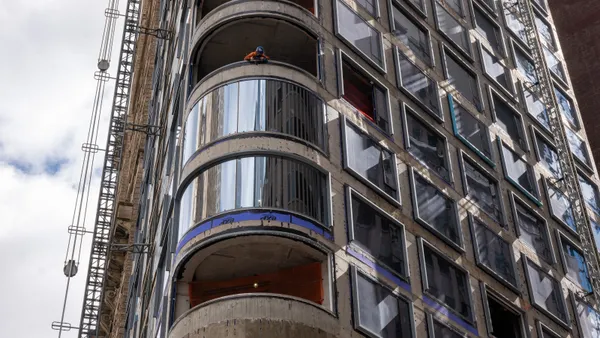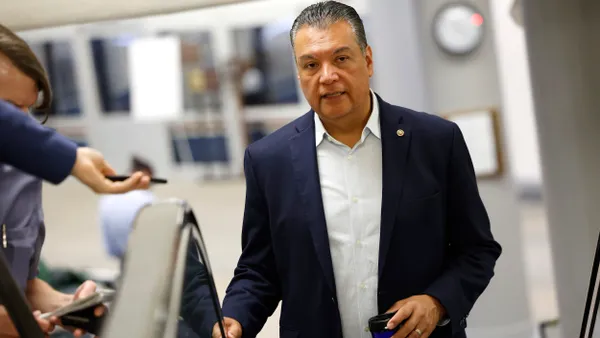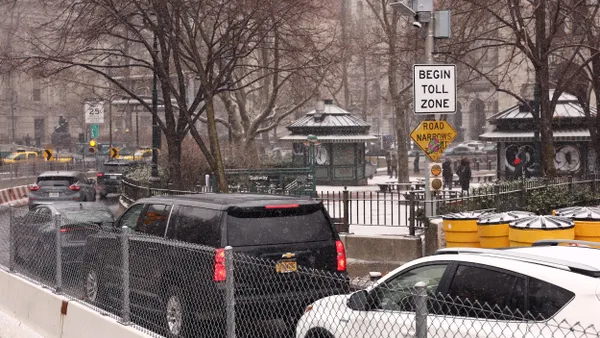UPDATE, Sept. 6, 2019: The San Francisco Board of Supervisors scrapped a plan that would have required tech companies to obtain special permits to operate in-house cafeterias that offer free employee lunches, according to the San Francisco Examiner.
During a board meeting Tuesday, Supervisor Ahsha Safai — who originally proposed a cafeteria ban in July 2018 — sent the legislation back to committee, citing a shift in labor agreements. While the original cafeteria restrictions were proposed in-part to address labor conditions, he said the industry is changing to better represent cafeteria workers.
Safai considers the progress in labor negotiations to be a "significant byproduct" of the proposal, according to the Examiner.
Dive Brief:
- Two San Francisco supervisors have proposed banning companies from having in-house cafeterias that offer employees free lunch, according to the San Francisco Examiner and others. Free lunch is a well-known perk at numerous tech companies based in the city, including Twitter and Airbnb.
- The supervisors introduced the legislation because they say tech companies' employees are hurting local restaurants by taking advantage of the perk and eating in-house, rather than patronizing neighborhood eating establishments. A number of surrounding restaurants have closed or are in danger of doing so as a result.
- The legislation would alter zoning laws to ban new industrial kitchens from being built in office buildings, but it would not affect existing ones.
Dive Insight:
This no-free-lunch proposal came about, in part, because San Francisco leaders took action several years ago to help revitalize and bridge economic divides in an area of downtown. In some cases it has backfired and is having the opposite effect.
In 2011, the city famously lured tech companies to the Mid-Market area with tax incentives to grow development in the neighborhood and drive a much-needed revamp. Many revitalization efforts had been launched previously but failed. An oft unspoken tidbit of local knowledge is that the "Mid-Market" area is just an extension of the city's notorious Tenderloin district and an effort to rebrand a portion of a neighborhood whose name instantly conjures negative connotations.
For decades, the Tenderloin has been a haven for some of the city's most poverty-stricken residents, and it is associated with crime, prostitution, drug use and severe rates of homelessness. It has resisted gentrification efforts and even today often is tagged with a "seedy" classification. The sizable neighborhood directly abuts Union Square, a tourist hub and destination for retail — some of it quite high-end. To the north also are some of the busiest downtown business and financial districts, with the Tenderloin lying right along a main subway line frequented by commuters.
The city has tried for years to turn around the Tenderloin and contain its influence, as well as shrink its borders. Hence the effort to offer incentives for big-name businesses to move into the Mid-Market area that is considered right next to, but not in, the Tenderloin. Twitter did move to that area in 2012.
Although the concept of free lunches might be largely unknown to the average American worker, it's a common perk among these tech companies. It's a curious perk too, considering that the average salary at Twitter and other tech behemoths is well into the six-figure range. Ironically, the well-off workers are surrounded by blocks of residents who can't make ends meet enough to feed themselves regularly.
The city's most recent effort has spurred some economic growth and more restaurants opened in Mid-Market following Twitter's arrival. However, the city's goal of tech workers supporting these establishments and further expanding the revitalization apparently hasn't taken hold as envisioned. In fact, the city has taken heat for not enforcing aspects of the "community benefits agreements" that provide the tax incentives, thus worsening the situation.
While the supervisors' new cafeteria ban proposal comes from a good place, it's a bit of an extreme way to try to correct the problem. Leaders likely will be met with pushback and cries of government overreach. If the measure passes, it has the potential to affect whether other tech companies and big businesses decide to move to Mid-Market in the future.











